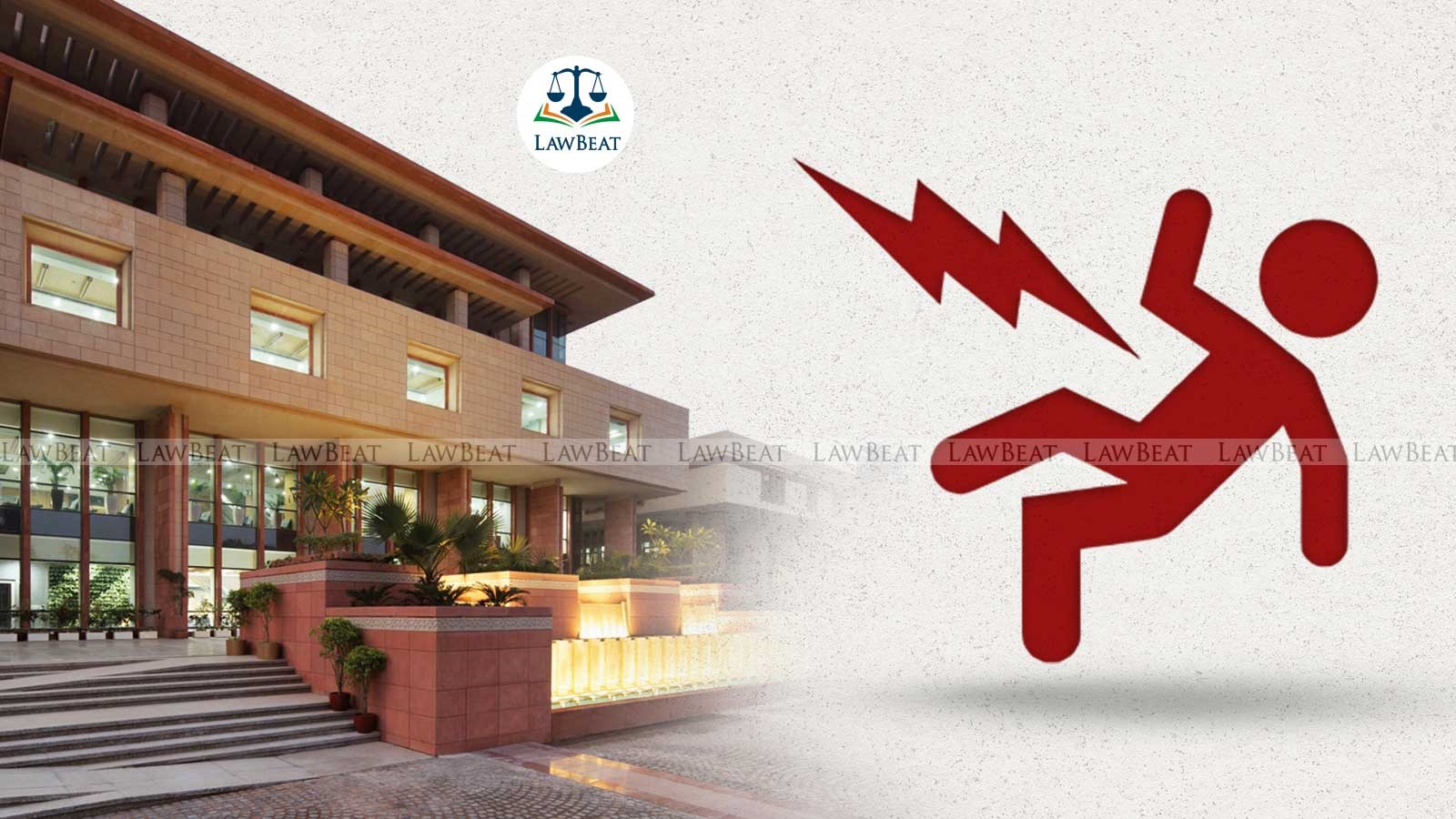Delhi HC Grants Ex Gratia Compensation To Parents Of 18 Year Old Boy Electrocuted To Death

“The Court deems it appropriate to issue directions regarding ex-gratia compensation which shall be payable to the petitioners to ameliorate their suffering for the time being, following the tragic loss of a son”.
The Delhi High Court, recently, granted ex gratia compensation of INR 10 lakh to the parents of an 18-year-old boy who was electrocuted leading to his death. The bench of Justice Purushaindra Kumar Kaurav deemed it appropriate to grant compensation to the parents despite prima facie evidence failing to establish the state’s negligence as the cause of the incident.
The deceased boy went to play football with neighborhood friends at a nearby park. Around 6:00 p.m., one of his friends informed the mother that the deceased had suffered an electric shock and met with an accident. He was rushed to G.T.B. Hospital in Shahdara, where he was declared dead on arrival. On July 11, 2017, the petitioners, distressed by their son's death due to alleged negligence, sent a legal notice seeking ₹5,02,21,600/- as compensation, including ₹5 crores for the death and ₹2,21,600/- for funeral expenses. However, there was no response from the BSES, Yamuna Power Limited (BYPL).
Advocate Wills Mathews, representing the parents, argued that the accident occurred due to BYPL’s negligence in maintaining the electric line, leading to the fall of the overhead wire and the electrocution of the deceased. Advocate Mathews claimed that the broken electric wire was old, and the local residents had repeatedly complained to BYPL about the issue, but their concerns were ignored. A representation from the Residents Welfare Association dated January 6, 2016, noted frequent electrical problems at specific poles.
Advocate Mathews submitted statements from an eyewitness who reported that on the day of the incident, sparks were seen around the conductor before the electric line fell. It was also alleged that BYPL might still be using outdated equipment, as modern systems should automatically shut down the power supply if a live wire breaks.
However, Senior Advocate Mohit Mathur, representing BYPL, argued that there was a factual dispute regarding the deceased's point of contact with the live wire. While the parents claimed that the deceased stepped on the wire, the Department of Forensic Sciences report, indicated the contact point was at the base of the deceased's left thumb.
Senior Advocate Mathur contended that BYPL had taken proper precautions, and the snapping of the overhead line occurred due to circumstances beyond its control, not due to negligence. It was also noted that the electricity did not stop because the circuit breaker typically activates if the fault occurs close to the substation, which was not the case here.
The court first referred to the case of Shagufta Ali v. Govt. of NCT Delhi, underscoring that individuals could seek writ jurisdiction for violations of their right to life, supporting the notion of compensation in appropriate cases.
The court also discussed the application of the legal maxim ‘res ipsa loquitur’, which implies absolute liability in cases where the State is directly responsible for an incident. It stated that when the cause and fact of death are indisputable, negligence can be presumed, although this depends on the circumstances of each case.
“If the State‟s liability for a tortious act, committed by itself or its servants, is undisputed or is prime facie evident from the record, the maxim res ipsa loquitur may be applied to overcome any factual impediments”, the court highlighted.
However, while examining the facts of the case, the court noted that there was a factual dispute. The court noted that BYPL claimed no negligence, attributing the accident to natural circumstances. The Electrical Inspector's report suggested that high winds and thunderstorms caused the conductor to snap, leading to current leakage. The court noted that maintenance responsibilities lay with BYPL, but the incident's exact causes were ambiguous and required expert testimony.
Ultimately, the court concluded that the facts surrounding the incident were disputed, particularly regarding negligence on the part of BYPL. The court, thus, determined that the matter was best suited for resolution in a civil court, where evidence could be properly examined.
“Therefore, facts and contentions made by the parties indicate that the negligence that led to the leakage of electricity current from the snapped conductor in the waterlogged area, prima facie, at this stage, cannot conclusively and solely be attributed to BYPL”, the court observed.
However, owing to the circumstances of the case, the court deemed it appropriate to grant ex-gratia compensation of INR 10 lakhs to the parents.
For Petitioner: Advocates Wills Mathews, Ginesh P, Nandita Batra, Paul John, Edison and Dhanesh M. Nair
For GNCTD: Additional Standing Counsel Rishikesh Kumar with Advocates Sheenu Priya, Atik Gill, Sudhir Kumar Shukla and Sudhir
For BYPL: Senior Advocate Mohit Mathur with Advocates Anupam Varma, Nikhil Sharma and Simran Kohli
Case Title: Devasia Thomas v Government Of NCT Of Delhi (2024:DHC:7817)
